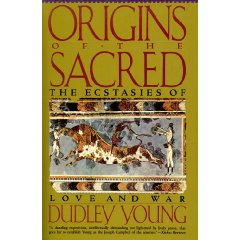
 |
Amazon.com |
Very interesting book, but not a light read.... Explains the "good reasons" for the splitting of the leadership of early human groups into political and spiritual...Interesting theory involves a ritual for a successful buffalo kill that got out of hand....(Don't want to spoil your fun). The author gets a lot of information on how people 35,000 years ago viewed their world from studying the origins of words... This book is really interesting...really....
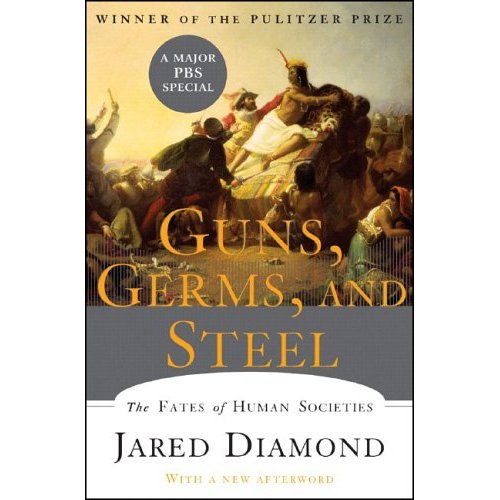 |
Amazon.com |
is also a very interesting book, and is a relatively light read. He is a biologist who has worked in various places, including New Guinea, where one of his friends asked him, about 25 years ago, why white people ended up with so much more material wealth than people of other skin colors... This book totally shoots racist theories down. He shows the influence of early human hunters, shows how the earliest hunter gatherers actually started to influence the genetics of plant foods...shows how climate, continental orientation, the development of government, writing, metallurgy and epidemic diseases, all created the situation we have today. He was accused by someone NPR found to argue with him on a call in show shortly after the book came out, of making the claim that "Geography is Destiny," which is probably a slight exaggeration of his viewpoint.... Anyway, this is really really really an interesting book which explains a lot about human history from a pretty long view (as long as the previous book.) It was on the NY Times best seller list for a while, and is quite readable...
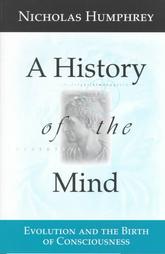 |
Amazon.com |
This is a good one for someone not used to philosophical treatises....The teaser on the jacket asks "When was the water of life transformed into the wine of consciousness?" What a sentence! Dick Humphrey is both a leading authority on the brain/ mind and editor of a well known poetry magazine. In case you could not tell from that first sentence... He has also been on PBS. The writer explains how brains evolved from simple light sensing cells in the earliest life forms. He carefully distinguishes between sensing and perceiving (it has been a while since I read this- so I may not be using the same words he does...) And shows how different redundant circuits were built up in animal forms to transmit information.... This book is also VERY readable and in parts very FUNNY. It really explains a lot about how our minds work... He does not go into FEELINGS (emotion, and how that relates back to what we sense or perceive), which is too bad, but it is really a whole different subject...Maybe he'll write that book next...or maybe that one is for someone else. This is the shortest one on the list so far...
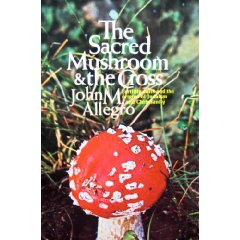 |
Amazon.com |
Published about 25 years ago, this one will be the most controversial for those with fundamentalist Christian, Jewish or Muslim backgrounds, but is really very interesting. It explains some of the very weird incomprehensible parts of both the old and new testaments, the places where they just usually give up and say they don't know what the original word meant. It also explains why God praised Lot's righteousness after he offered his virgin daughters to be raped by a nasty crowd of lewd men... His evidence all leads back to showing how Judaism, and thus the offspring religions, did not spring full blown and totally new and revolutionary out of nowhere when God revealed himself to Abraham.... Rather, Judaism was a natural evolution from the fertility cults of the time. He takes his evidence from linguistic studies that had just become possible due to decoding of the language that was the precursor to Hebrew and Aramaic and other languages of the fertile crescent and surrounding areas. This book would be ranked as slightly easier to digest than the first one on the list, but harder than the others. He gives all his linguistic evidence in excruciating detail, that I certainly could not even start to follow, even though I spoke relatively fluent modern Hebrew at one time... Nevertheless, this book sheds a lot of light on why our culture values what it does... His description of how the people of 5000 years ago viewed the physical world is well worth the reading, and that is at the beginning of the book. The title comes from his theory that the New Testament is simply a story told to cover up and transmit recipes for "safe" use of hallucinogenic mushrooms which allowed direct experience of the divine. Some of that material will seem very far fetched to some, and again this is not what I would call a light read, but it is an interesting book and his academic credentials are impeccable.
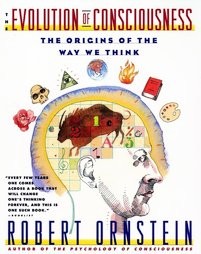 |
Amazon.com |
This is another very interesting book which sheds light on why and when humans ended up with so much grey matter. I can't remember if it is in this book, or another that he wrote, but he also shows why we make some types of decisions that are just not logical.... Our brains and thought patterns developed during times of less guaranteed abundance than most Americans are used to today... He shows why and how we can overcome some of the limited thinking patterns that we have developed over the millennia...This book is readable...
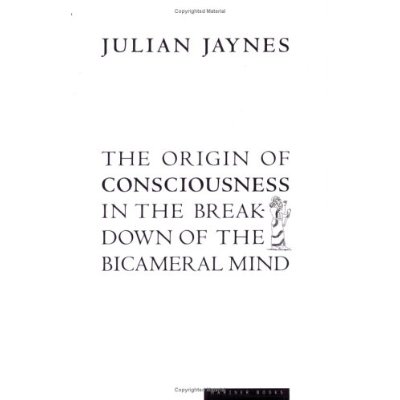 |
Amazon.com |
This is the classic book on consciousness, written by a professor from Johns Hopkins University. He uses literary sources, including the Greek classics, the Bible, and others, to show how people's perceptions of themselves and their relationship with their deities changed over the years. His theory that people's belief in God is solely based on early humans hearing remembered voices of dead relatives is a bit ridiculous, (he got it from the grandfather of modern anthropology, Sir Edward Tylor), however, his demonstration of how the transition in consciousness that took place in most parts of the world about two to three thousand years ago, was brought about in some key ways, by the early traders, who were forced to realize that there was more than one way to view the world, is important for us to understand today. Jaynes' descriptions of how philosophers and scientists have struggled to define consciousness over the years are really good. He is also to be commended for acknowledging the theories that he does not like. Parts of this book would also be rated in the very heavy reading category, but some parts are lighter...
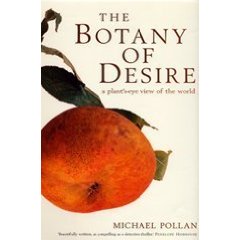 |
Amazon.com |
is a wonderful book that took some inspiration from Jared Diamond's Guns, Germs, Steel. He shows how the apple, tulip, potato and the cannabis plant have domesticated humans! The real story of Johnny Appleseed is alone worth the read. This book is light reading, even for those of you who fall asleep after 15 minutes with a book. This one will keep your eyes peeled.
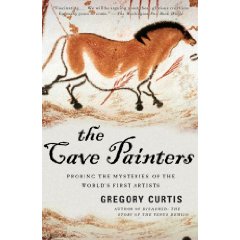 |
Amazon.com |
is the newest on this list and totally blew my mind when I read it. The author is an art historian, but he wrote this book like a mystery novel and it covers many of the latest scientific theories and spiritual speculations that get us back to how people thought 20,000 years ago. Fascinating reading is too low key of a recommendation. This book is just great!
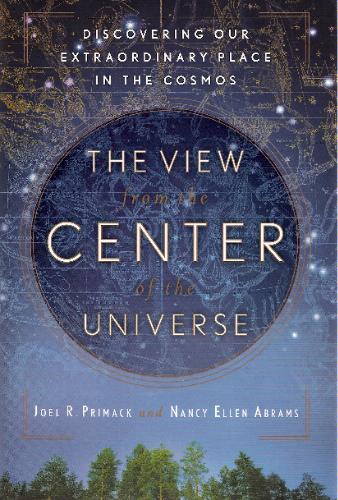 |
Amazon.com |
again tries to trace the history of how we humans have viewed our place in the universe, and how those theories have affected our lives and our progress. They are physicist and science historian respectively with an atheist perspective, and the book shares the dinner table conversations they have had for years, and also turned into a popular class at the University of California at Santa Cruz. The book is a breathtaking vision of where humanity could go with new views of our place in the universe. My only complaint is that they geared this to westerners. Some of the problems with religion that they bring up are not as problematic with advanced forms of philosophical Hinduism, for example. One of my friends who is a physicist says their physics (which follows main stream physics) is not right. But in any case, I think this highly readable book is worth reading anyway, just to see what they are doing to help modern humans get closer to what we all desire, which is to not have to feel so schizophrenic about our place in the modern technological world.
Well, that should use up some of your spare time....Happy reading.... Anyone who actually reads one of these is encouraged to let me know what you think....
Debbie